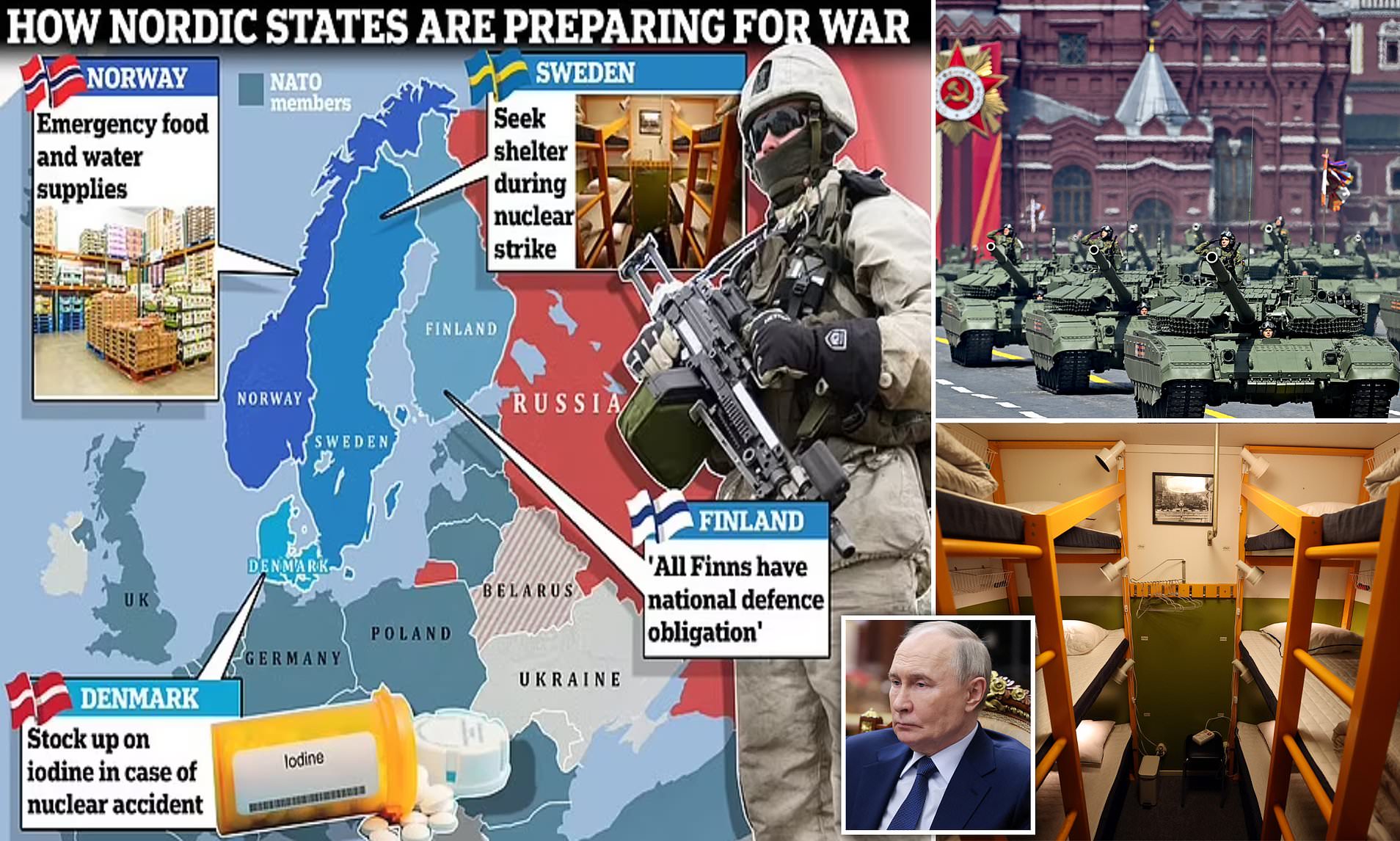EU Launches First Ever Plan to Stockpile Essential Goods
The European Union has unveiled its first-ever strategy to stockpile essential goods such as food, water, fuel and medicines in anticipation of potential crises. This move comes amid growing concerns over the possibility of a conflict with Russia, which is currently engaged in a war against Ukraine, an EU neighbor.
The new plan, known as the ‘stockpiling strategy,’ is part of a broader effort by the 27-nation bloc to enhance its readiness and ensure it can defend itself by 2030. The EU’s crisis management commissioner, Hadja Lahbib, emphasized that the goal is to guarantee the availability of essential supplies that keep societies running, especially those that save lives.
“The more we prepare, the less we panic,” Lahbib said, highlighting the importance of being ready for various types of emergencies, including major energy blackouts, natural disasters, conflicts, or pandemics.
Coordinating Efforts Across Member States
The EU’s approach involves creating a network between member states to better coordinate stockpiles, identify gaps, and strengthen ‘EU-level stockpiles.’ However, the levels of crisis preparedness among EU citizens still vary significantly from country to country.
For instance, Finland, which shares a long border with Russia, has long been focused on preparing its society for potential conflict. Lahbib noted that while countries like Spain may be more concerned about wildfires, there is no one-size-fits-all approach to crisis preparedness.
She also pointed out that regardless of the cause of a crisis—whether it’s conflict or natural disaster—the impact on citizens can be similar. “People are without energy, and that’s why we need to stockpile items everywhere in the European Union,” she added.
Encouraging Household Preparedness
As part of its efforts, the EU has advised every household to have a three-day survival kit containing essentials such as water, food, and flashlights. This initiative aims to ensure that individuals are equipped to handle emergencies, whether they arise from natural disasters or other unforeseen events.
The commission also advocates for better integration through ‘highly integrated value and supply chains’ within the Single Market. While the needs of each country may differ, the EU must foster a ‘comprehensive, shared analysis among all relevant stakeholders, across sectors and borders, and to coordinate efforts to prepare and respond quickly and effectively.’
Preparing for a Range of Threats
Beyond the threat of war, Europe is also looking to prepare for natural disasters, human-induced disasters, health emergencies, and hybrid threats such as cyberattacks and disinformation campaigns.
In contrast, the UK has faced criticism for falling behind in civil planning despite its recent history of armed conflicts. In November, the chief of the UK defence staff, Admiral Sir Tony Radakin, acknowledged that the UK lacks some of the civil aspects of planning that other allies have traditionally incorporated into their strategies.
Sweden’s Approach to Preparedness
Sweden, which has been part of the EU since 1995 and joined NATO in 2024, has taken proactive steps to prepare its population for potential conflict. The country recently distributed five million pamphlets to its citizens, urging them to be mentally and logistically ready for a possible prolonged conflict. This follows the worsening security situation due to Russia’s invasion of Ukraine.
Meanwhile, the UK is starting to take measures to better prepare its civilian population for the possibility of war. In June, the government published its National Security Strategy 2025, which acknowledges the need to actively prepare for the possibility of the UK homeland coming under direct threat.
The strategy outlines plans to strengthen borders, enhance critical national infrastructure, and promote economic ties with the EU and the US. It also emphasizes the importance of building domestic resilience to future threats that could disrupt daily life.
A new Resilience Strategy will focus on supporting civil society and the public sector in addressing risks and vulnerabilities. This includes launching public communications to inform citizens about preparedness for potential risks. The government is investing £1 billion to prepare the UK for biological incidents, accidents, and attacks.






